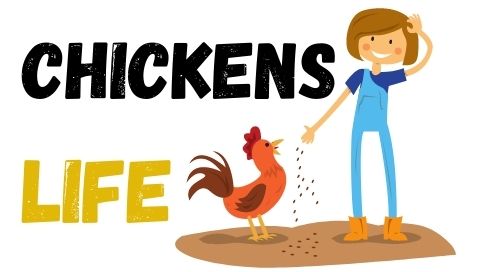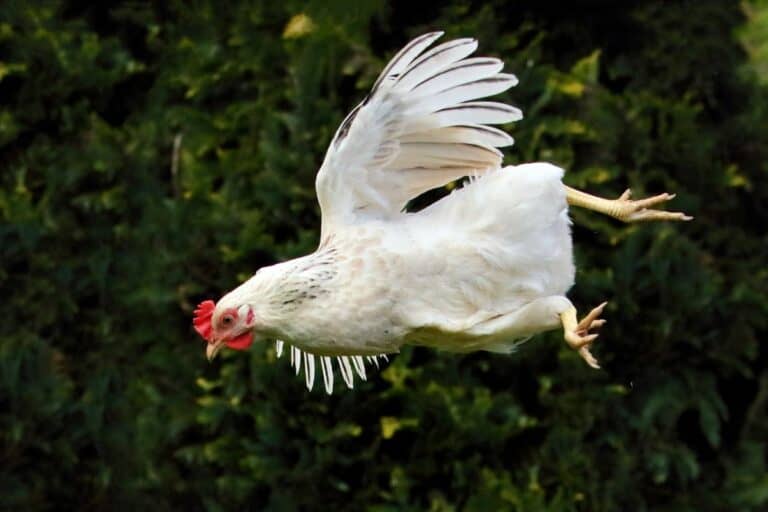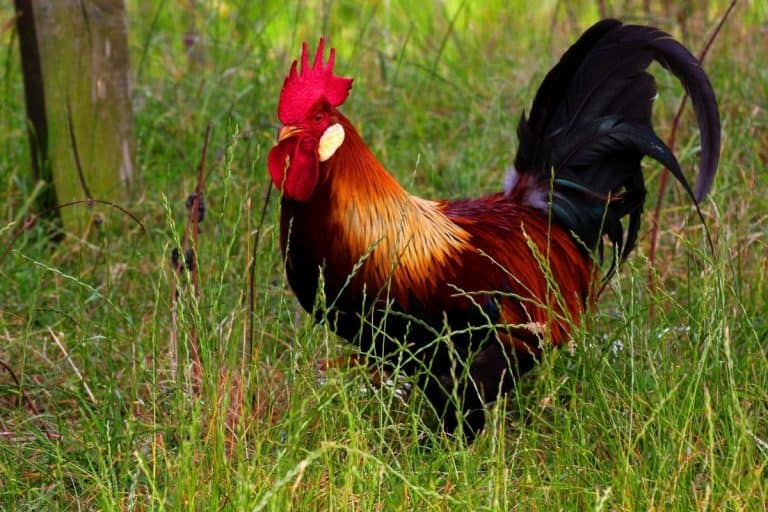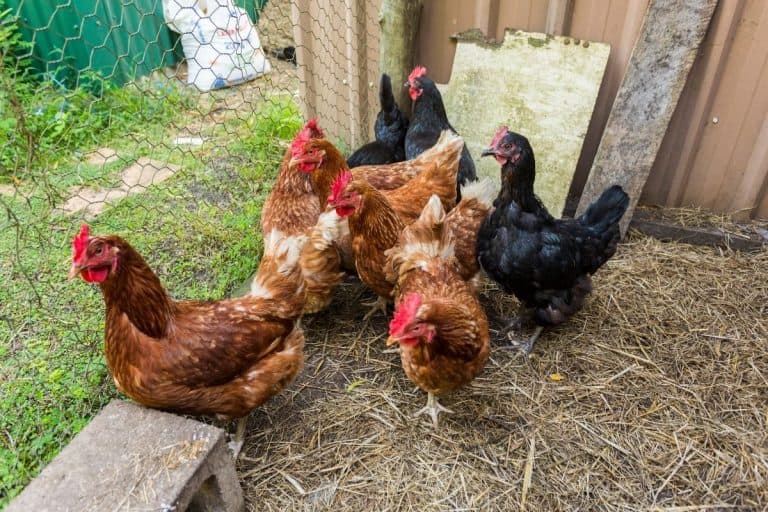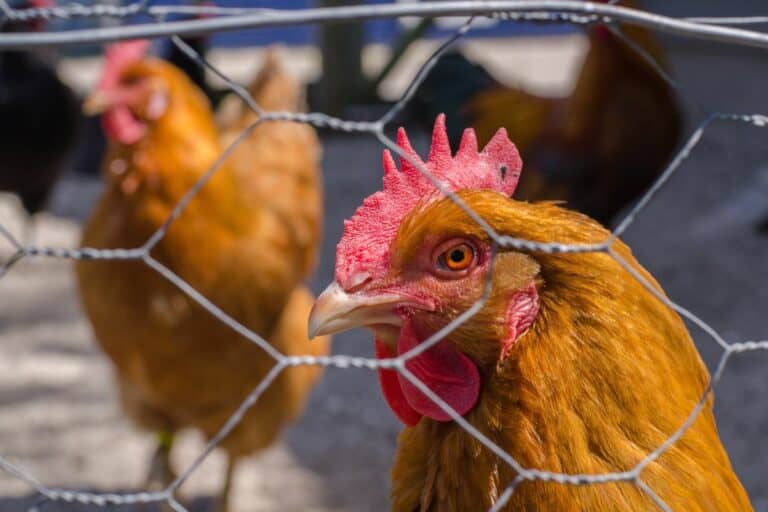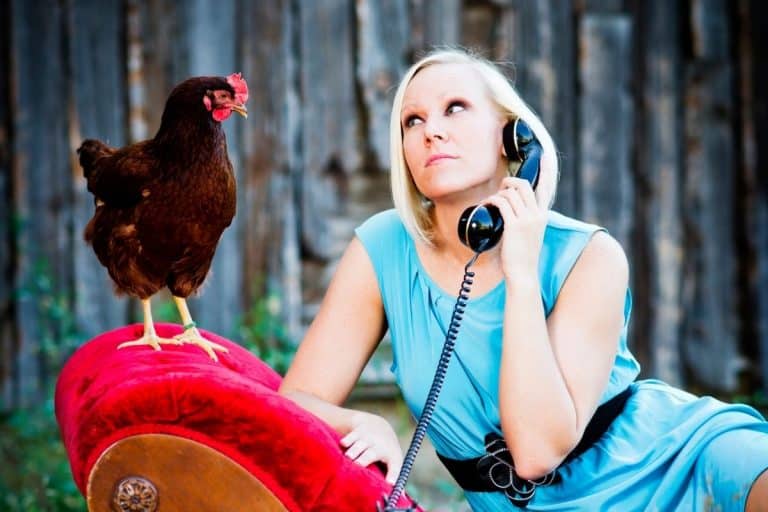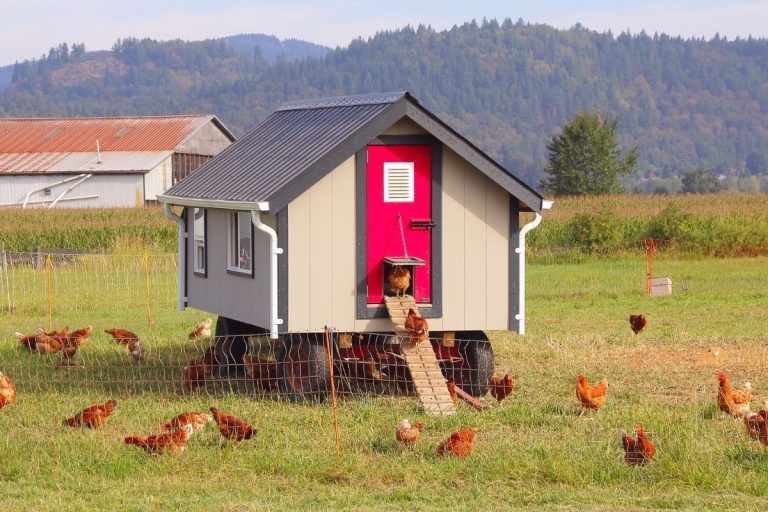Are Hens Happier with a Rooster? (Pros and Cons)
Do you need to have a rooster to have happier hens? While they can still live peaceful chicken lives with a man strutting about, many raisers of these egg laying ladies feel that having a rooster around causes more problems than he keeps away. But some believe that the reduced stress and aggression among the hens can be worth the noise and potential trouble. Where is the truth?
Having a rooster isn’t a bad idea, but hens do not need to have one around to be happy and lay eggs. There is no change in the number of eggs that the hen will produce either, making it more about preference for the person raising the chickens.
There are several pros and cons to having a rooster with your flock, ranging from the negatives like his loud crowing all the way to the positives like him being a guardian to his ladies. There are always several things to think about when raising chickens, and whether or not to bring a rooster into the flock is something to deeply consider.
But before you dive into this topic, did you know I've got a page packed with my go-to chicken stuff? From the best feed to handy tools, it's all there. Don't you want the best for your flock? Check it out right here.
Is it good to have a rooster with your hens?
Roosters help to reduce discord among the hens and bring a calmer environment to the flock as a whole. They are overall a benefit in most situations with more than 5 or 6 hens.
If you have less than that, the rooster is left without many options during mating season, which can cause a problem. They are beneficial for several reasons, but mostly they help bring a ‘pecking order’ among the hens in the flock.
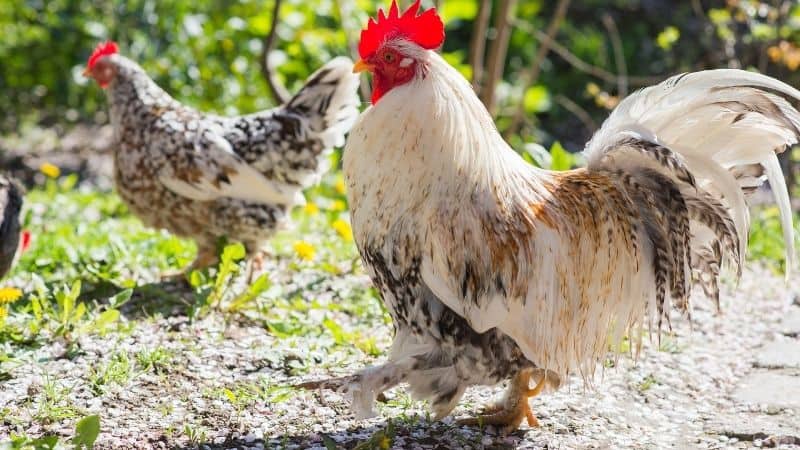
Ultimately, hens will live presumably happy lives without a rooster present. But through research, it seems to be mostly opinion-based. However, there is a study which shows how many flocks that have a rooster present have reduced stress and aggression among its hens. This is believed to be because in nature, it is normal for a rooster to live among a group of females, giving them a sense of being protected and taken care of.
Many folks who raise chickens, country or suburban, opt to go rooster free. The answer is usually because they are not necessary to have a flock because they are not looking to breed the chickens.
The biggest pros to having a rooster is that it’s the only way to produce chicks, since they are the only way that eggs can be fertilized. Without them, the hens will just lay tasty, but unfertilized and sterile eggs.
Wait, I have some recommendations for you!
Before you go any further, I want you to take a look at some of the recommendations I've handpicked for you. I think these are essential items you should have for your chickens flock. You can check them out and buy them directly from Amazon.
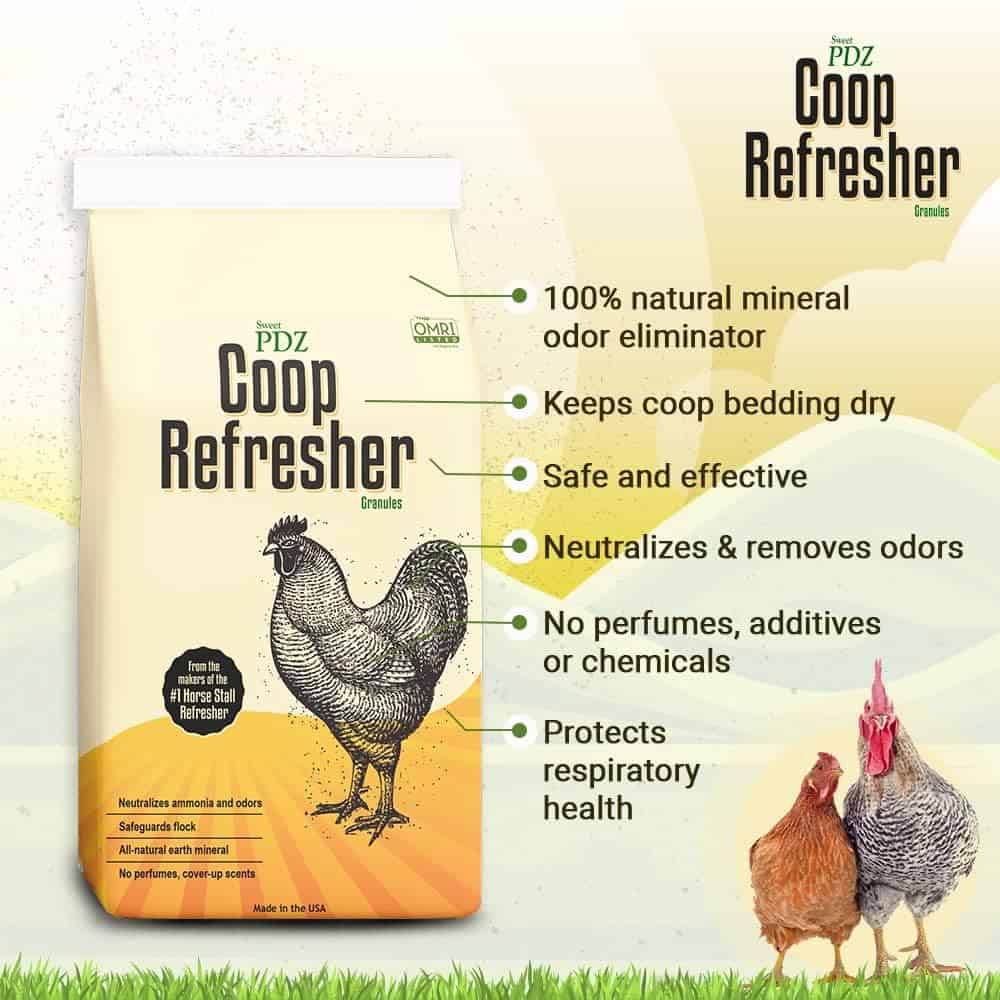 |  | 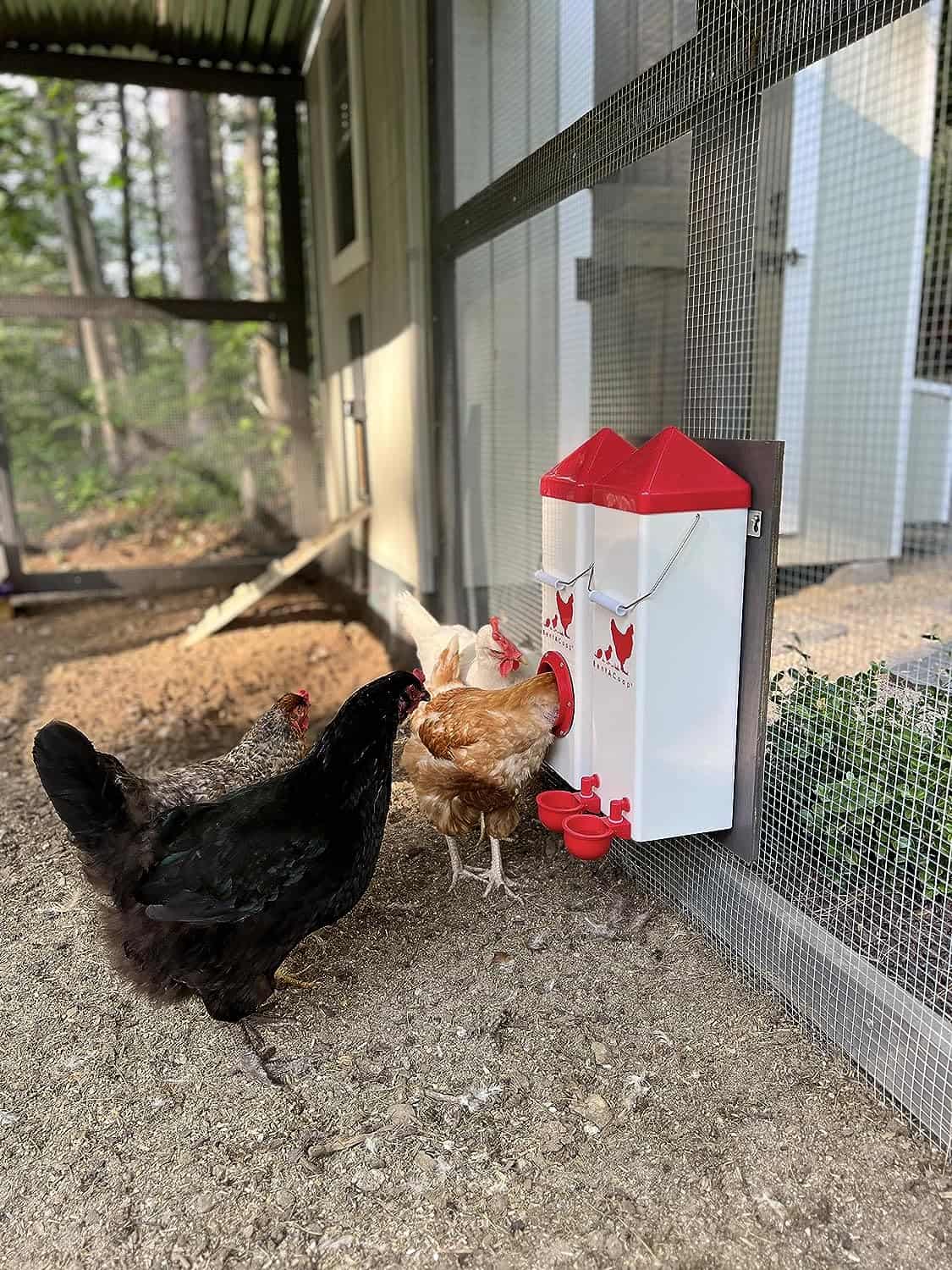 |  |
| Essential accessory for your coop | No more tripping over hoses! | Predator protection made easy | Comfort + style is possible |
Will hens be happier without a rooster?
Flocks of hens that do not have a rooster present will frequently suffer from disharmony among the group. One hen will attempt to assert herself as dominant hen, fighting with the others. Then there are issues of the weaker females that suffer from the others bullying them.
If you have a rooster in your flock, then he will help control the hens, keeping one or two from picking on the others.
Roosters are known for breaking up the quarrels among the ladies, keeping the peace, and playing referee. Therefore, nearly eliminating henpecking, which can be a large problem among flocks with no roosters.
If you have a large property and free-range hens, it would be wise to have a rooster around. They are wise enough to know that predators could be lurking in unknown territory, and he will keep them from wandering too far, herding the hens back towards familiar areas for grazing.
Defending the hens from predators and you
Roosters have been notorious for their aggressive nature towards people and other animals for years. Most people have seen a cartoon or a movie where one was portrayed as being somewhat vicious and relentless.
Roosters will attack with the bravery of a lion if they feel that they or their ladies are in danger. A rooster can take on some small predators, but would most likely lose to anything much larger or more determined than a fox or raccoon.
You can see in this video a fox attacking a flock, where the roosters are defending the hens:
Besides their feats of physical prowess, they have a very loud and disturbing crow that they will let out in alarm to warn about any dangers. Even though the rooster can’t do much physically against what he sees as a threat, he can at least use his crow to hopefully send a signal to the hens to get them out of harm’s way with a step ahead.
While this means that they will help to protect the flock, it also means that he may try defending against unnecessary threats as well, like you or your family and friends.
Raising them since they were young will usually help decrease the chances of them turning on you, but even then after a while, they tend to become increasingly aggressive with owners over time, especially during mating season.
Crowing and happy helpers
Crowing is a big reason why many people choose not to have a rooster with their flock. The noise can be very loud and disturbing in the early hours of the morning; imagine the stereotypical crow of a rooster as the sun is rising in a cartoon.
Some people believe it to be a pro for keeping around a loud cockerel. They find their warning calls to be beneficial for the flock and the property as a whole.
There are rooster “collars” that go around their neck, not allowing their throats to expand entirely, therefore keeping their crows quieter (see on Amazon what it looks like). These are not legal in all states and have been considered cruel among many chicken communities. They are not recommended.
The mother hens will get excited about finding a juicy worm or bug in the dirt for their little ones, and the roosters will do the same happy dance.
Roosters are far from selfish and go out of their way to find food for their flock. They hunt around the grass, scrounging for anything tasty that they can pick out for the ladies, drawing attention to it by either picking it up repeatedly and making noise or by jumping up and down excitedly.
The overly ‘enthusiastic’ rooster
During mating season, some roosters will mate with the hens so often that they create sores and bald patches on their backs. This normally only happens if you don’t have enough hens, it is good to have around 8-12 hens per rooster.
If there are only 5 or 6 for him to mate with, it is more likely that there will be issues with trauma to the hens. The rooster is not intentionally hurting them, this happens because his claws accidentally pull out feathers and scratch their skin when mounting the female to mate.
If trauma is occurring due to this activity, there are “saddles” or vests that can be purchased to put on the backs of the hens to protect them from the roosters’ claws.
While roosters won’t intentionally injure the hens, they have been known to be aggressive towards and kill chicks if the mothers are paying too much attention to them during mating season.
Strutting their stuff
While roosters can be viewed as threatening, they can sometimes put on their little shows that people have named the “rooster shuffle dance”. This display is normally seen as a chicken mating ritual, but can also be witnessed when they are excited for other reasons, like when it’s feeding time, or they see their favorite caretaker.
Their dancing skills alone may not be a deciding factor in why you want to have a rooster in your flock, but carefully considering the pros and cons is truly beneficial 🙂

